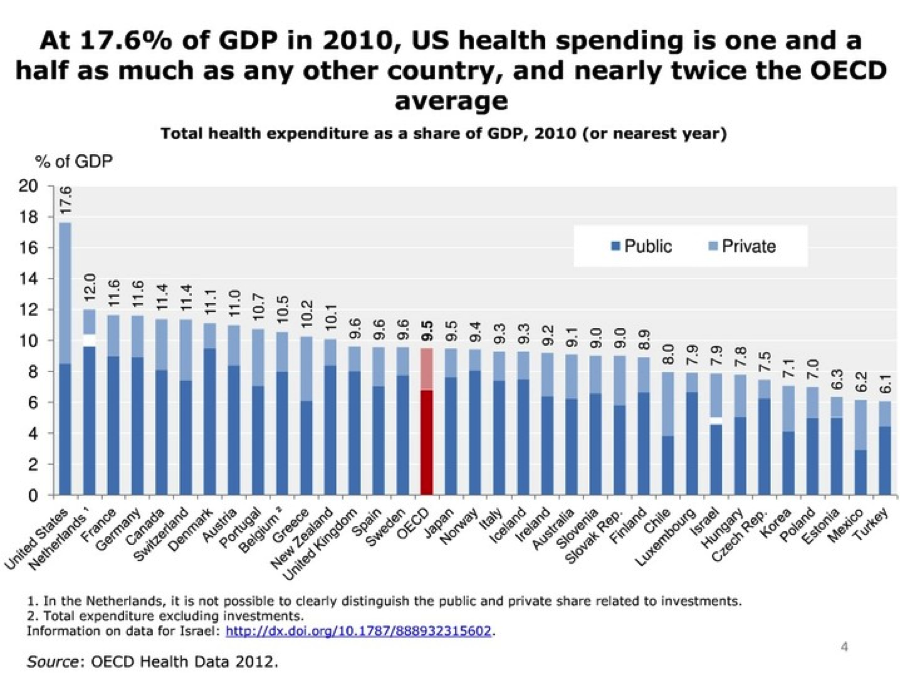I was recently sent a scanned copy of this editorial which appeared in Newsweek magazine 6 years ago, in which the viewpoint was expressed that a country's health-care system reflects the societal values that predominate in that country. Examples are provided. That article is available online.
UNIVERSAL HEALTH CARE IS A MORAL CHOICE
The design of any country's health-care system involves political,
medical, and economic decisions. But the primary issue for any
health-care system is a moral question: should a rich society provide
health care to everyone who needs it? If a nation answers yes to
that moral question, it will build a health-care system like the ones in
Britain, Germany, Canada, France, and Japan, where everybody is
covered. If a nation doesn't decide to provide universal coverage,
then you're likely to end up with a system where some people get the
finest medical care on earth in the finest hospitals, and tens of
thousands of others are left to die for lack of care. Without the moral
commitment, in other words, you end up with a system like America's.
I was 48 years old when immigrated to Canada in 2005, with my wife and daughter (who was 14 at the time). At that time, Canada had a new conservative government and "privatisation" of the health care system was a hot topic. I think the Obamacare" debate in the States educated a lot of Canadians about our own health care system.
Under the auspices of the NAFTA treaty (as skilled work immigrants) we became eligible for Medicare after a three month wait). And we have no complaints.
The Canadian single-payer health care system is often criticized for long wait times for non-emergency medical procedures. It is true that any non-emergency surgery, though, is likely to put you on a waiting list. But in an emergency – a real emergency – you go straight to the head of the line, if your doctors says you need a procedure; you get it. Without waiting.
In Canada, medical decisions are left entirely up to doctors, and there are no requirements for pre-authorization whatsoever If your family doctor says you need an MRI, you get an MRI. I did, immediately, in August 2012, after an accident. No "waiting list". In the US, if an insurance administrator or HMO rep says you are not getting an MRI, then you're not getting one regardless of what your doctor thinks — unless, of course, you pay for it out of your own pocket. Which is why far more Americans are paying for necessary medical procedures out of their own pockets than there are Canadians who find it necessary to do that.
As this article points out, "while the U.S. lets some 700,000 people go bankrupt due to medical bills each year, the number of medical bankruptcies in Canada is precisely zero." What's that worth to a society?
Health care spending, per-capita, and as a percentage of national GDP, is higher in the US than anywhere else in the world. It's all about profit. Not people. And that has become a reflection of American society. Profit before people. It's a recipe for failure in any society.

No comments:
Post a Comment